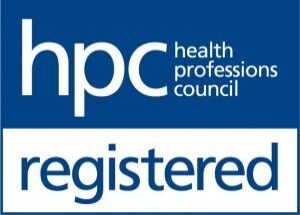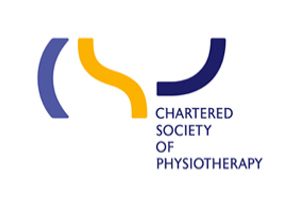
posted 27th June 2023
Specialized Physiotherapy for Bronchiectasis Patients in London & Essex
What is Bronchiectasis?
Bronchiectasis is a long-term condition which affects your lungs. It causes your airways to widen, become scarred and inflamed, leading to thicker mucus which is more likely to get trapped and infected.

What are the most common bronchiectasis symptoms?
The most common symptom is coughing up more sputum, also called phlegm or mucus. This can vary from person to person and severe cases can be as much as a pot a day.
Difficulty in clearing sputum can also lead to frequent chest infections which can be distressing and impact your day-to-day activities.
Other symptoms you may have are:
- Fatigue or tiredness
- Feeling short of breath
- Problems with your sinuses
- Urine incontinence or bladder leaking
- Anxiety or depression
Everyone is different and you may have a few or many of the symptoms listed above.
Bronchiectasis Main Causes
For some people with bronchiectasis there is no clear cause. However, in the majority of cases, some illnesses have been linked:
- Previous history of severe lung infection such as Pneumonia, Whooping Cough or Tuberculosis (TB)
- Inflammatory Bowel Disease such as Ulcerative Colitis and Crohn’s Disease
- Immune system deficiencies
- Arthritis disorders such as Rheumatoid Arthritis
- Conditions affecting the structure of your lungs e.g. Primary Cilia Dyskinesia
- Allergies to fungi and moulds
- Gastric Reflux
- Blockage of airways such as peanuts.
- Other respiratory conditions such as Asthma Asthma and Chronic Obstructive Pulmonary Disease (COPD)
Managing Bronchiectasis
Management of Bronchiectasis is made up of maintenance treatments and treatment for flare-ups or chest infections.
During flare-ups you may require treatment with antibiotics, often for 14 days, which your doctor will prescribe for you. If you have very frequent flare ups, your doctor may advise keeping a rescue pack of antibiotics for you to take at home as soon as your symptoms appear.
Evidence supports the use of sputum clearance techniques and devices to keep your lungs clear, reducing the number of infections you have and the impact of your symptoms.
A Respiratory Physiotherapist can recommend the appropriate technique or device for you including how often to complete these based on your condition. They often recommend a routine for when you are well, and also make changes for when you are unwell.
Our Respiratory Physiotherapists at Estuary Physio are here to create a bespoke Self-Management Plan with you to help manage these symptoms.
How can I prevent future flare-ups?
Regular airway clearance is essential in preventing sputum build up in your lungs and chances of getting infections. Evidence has suggested that people with Bronchiectasis who complete daily airway clearance techniques have a much lower frequency of flare ups per year.
As well as airway clearance techniques, it is essential you keep as active as possible. This can be difficult when you are feeling breathless, however exercise and muscle strengthening helps your muscles to use oxygen more efficiently so your lungs don’t have to work quite as hard when you’re active.
What is the the prognosis for people with bronchiectasis?
Bronchiectasis is a long-term condition which some people develop at different stages of their life. Treatments are based on reducing the number and severity of infections, but often it’s the other symptoms such as cough, shortness of breath and immobility which can impact your quality of life as well.
If this is something you are worried about, speaking to one of our respiratory physiotherapists may help you to find ways to manage these symptoms and improve your quality of life in the process.

Will I benefit from physiotherapy?
People with Bronchiectasis have differing needs and symptoms requiring individualised management plans. Your Respiratory Consultant may recommend Physiotherapy as a treatment option to help manage your condition. At Estuary Physio, our initial consultation lasts one hour and involves a comprehensive assessment of your needs and development of a self-management plan which will include teaching you an airway clearance technique, recommendations on activity and exercise and how to manage breathlessness.
Other Conditions We Treat
We understand that our clients often have a range of medical conditions. Our therapists have a broad range of backgrounds. For example, coughing can often cause our posture to change leading to neck and back pain. We have specialist Musculoskeletal therapists who can work alongside a Respiratory Physiotherapist to get the best results.
Helpful resources:
Asthma and Lung UK - Bronchiectasis
NHS - Bronchiectasis
NHS - Physiotherapy
See also our pages on Low Blood Pressure and Parkinson's=?aid, and having your first physiotherapy appointment=?aid.
If you would like to know more about Estuary Physio Bronchiectasis service or speak to one of our clinicians, please contact us, or book an appointment using the button below.
Medical Review
The information on this page has been reviewed for accuracy by Barry Ford BSc MCSP, Physiotherapist





